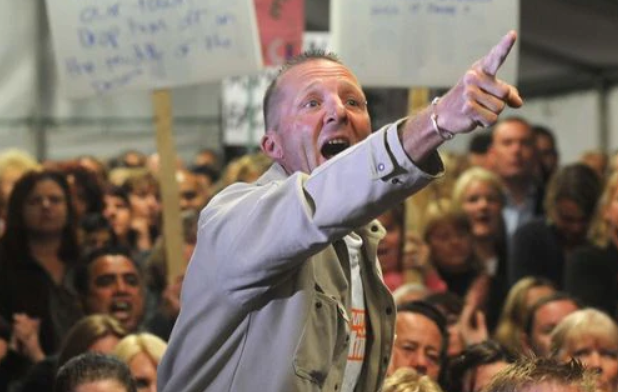A neighbor who knew I had money came to me one day with a plea: his mother was sick, needed medicine, and he was broke. Could I lend him $200? He would pay it back in a week, he said, but today he was strapped for cash and his mother needed help.

I had some reasons to think he was probably stretching the truth. He was known to be a heavy drinker and had a hard time holding down a job; but he showed me a tattered prescription from a doctor, so I couldn’t be certain. I was living in another country at the time, customs were different, and I knew that challenging his story would create great resentments, not only with him but probably among others in the neighborhood. After all, he was a native and I was a guest in his town.
I prayed and asked God what I should do. I had the money, I thought about this very passage of Scripture, and in the end I agreed to make the loan. He was very grateful, but I never saw the money again. In fact, he went out of his way to avoid me from that day on. He was ashamed. I probably should have just made the money a gift. It would have been more generous on my part, but it would have put him in my debt in a way that would have been just as difficult for him to live with, if not more.
I was reminded of that while reading some of Jesus’ words this morning:
“Love your enemies! Do good to them. Lend to them without expecting to be repaid. Then your reward from heaven will be very great, and you will truly be acting as children of the Most High, for he is kind to those who are unthankful and wicked. You must be compassionate, just as your Father is compassionate.” —Luke 6:35-36 (NLT)
Money and debt have destroyed relationships. But the point of Jesus’ teaching here is not actually about money. He’s using the practice of lending and borrowing to teach about a much bigger issue: the need for compassion and generosity in our dealings with each another, especially when it comes to people we don’t like very much.
Most of us have no trouble being generous towards our friends. Good friendships are full of reciprocity of all sorts. I might borrow your chain saw, you might ask for my help repairing a lawn mower. Friends don’t keep score because they don’t have to. You have us over for dinner, we have you over for a cook-out; we pick up your kids from soccer, you take our kids to the school basketball game. Good friends give and take without taking advantage. Good friends enjoy being generous towards each other.
But what about that guy who borrowed your chain saw and returned it broken? Or the office gossip who insults you or starts rumors about you. What about the family member who isn’t on speaking terms because you voted for the wrong person? Or the neighbor kid who lays rubber down the street at 3am. Or the politician whose views make your blood boil?
This annoying little passage comes straight from Jesus’ “Sermon on the Mount”, where he challenged a large gathering of Jews to think differently about what it meant to be God’s chosen people. Just a few sentences earlier, he says this:
“Here is a simple rule of thumb for behavior: Ask yourself what you want people to do for you; then grab the initiative and do it for them!” —Luke 6:31 (The Message)
That’s popularly known as the Golden Rule, in case the translation isn’t familiar. What’s wrong with giving someone the finger when they cut me off in traffic? What’s wrong with cursing someone who has made me angry? What’s wrong with tweeting insults about that politician I hate, or trolling people online who don’t share my politics?
For Christians, what’s wrong is that God expects us to treat the people we encounter with the very same patience, mercy, and forgiveness he extends to us in Jesus Christ. “[Act] as children of the Most High, for he is kind to those who are unthankful and wicked.”
This may be hardest to live out in the increasingly toxic and balkanized political climate we’re living in, where we’re told to choose between the party of Mother Teresa and the party of Hitler. We’re expected to have disdain for those who don’t share our views and to shun them wherever we meet them. We no longer have good faith policy disagreements, but instead, we accuse our opponents of embracing hatred, of dehumanizing, of fomenting evil.
I don’t have much hope that these fires can be extinguished, but I do believe that Christians have the ability to examine ourselves, to pull back, to speak and act differently. We’re capable of acting differently because we are God’s children. We are able to think differently because we have God’s Holy Spirit in us. We’re able to inject the glue of love into the fractures of our society by living differently, living generously, as peacemakers in a world at war.




Comment Policy: All comments are subject to moderation. Your words are your own, but AnotherThink is mine, so I reserve the right to censor language that is uncouth or derogatory. No anonymous comments will be published, but if you include your real name and email address (kept private), you can say pretty much whatever is on your mind. I look forward to hearing from you.